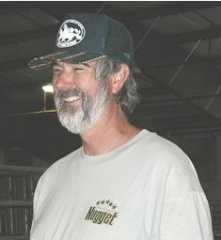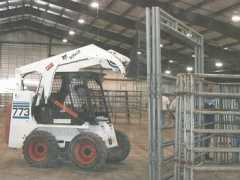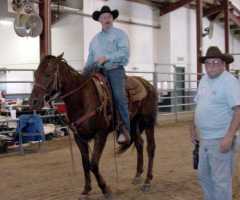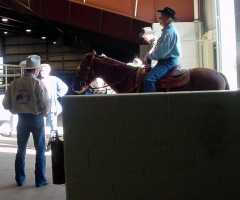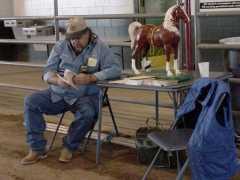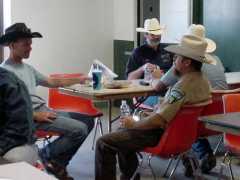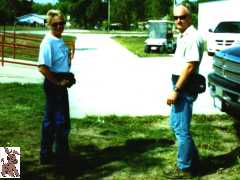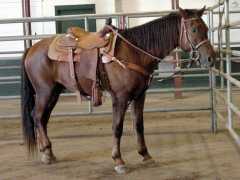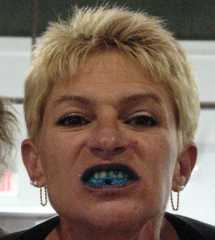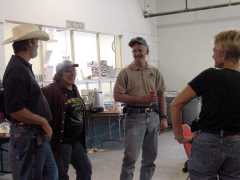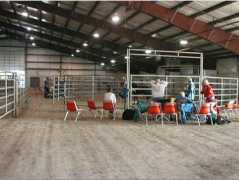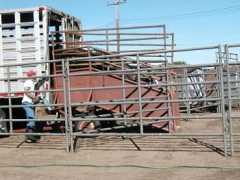LRTC Wild Horse Mentors'
|
Bob Mitchell, OK District Lead
|
|
They sometimes don't get much notice but the BLM crew does a ton of work to make these workshops fly. They have to bring in all the horses and pens, start early in the morning to feed the animals before the program starts in the morning. Then they have to have the first loads of horses in the training pens for the first session. All day long they sort and move animals, often not putting the last ones up and feeding them until after dark. Then there is adopter paperwork and prospective adopters to talk to and interview. It all makes for a pretty busy day.
Bob Mitchell and his crew, assisted by personnel from the Milwaukee office, did an exemplary job all throughout the workshop. |
Cody moving panels
|
Cody heading out to sort more horses
|
Watching horses going into training pens
|
Jimmy and Thunder
|
Janet Nordin & Tom Pogacnik
|
| As Public Affairs Officer for the National Wild Horse & Burro program, Janet Nordin worked tirelessly to make sure everyone was properly accommodated. |
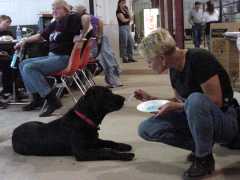
|
Happy halloween! |
Bob, Cher, Tom & Janet | Each time we hold a program in a district with a fresh BLM crew, it usually takes them a little time to get used to our, well, creative approaches to horse gentling and training. Typically in time they start to understand what it is that we are doing and even offer suggestions such as Cody showing Robert the correct way to do the Hula. |
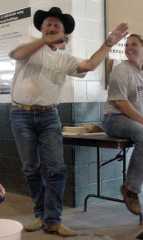
|
A fraction of the total training pens |
Unloading into holding pens "down below" |
|
One risk when unloading horses from the transport is dropping their feet through the crack between the transport and the ramp. Gene Compton solved this problem by installing this dock bumper on the back of his truck. He also has modified his side panels to prevent babies and burros from getting their feet stuck between the side rails. Good thinking Gene! |
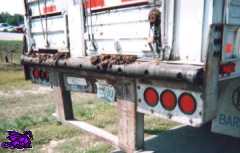
|
| The BLM is studying the use of contraceptives on some wild horse herds. While this approach will not completely resolve population growth rate issues, it may significantly reduce the numbers of horses which have to be removed from the range. |
Continue to Part Fourteen
Return to Part Twelve

